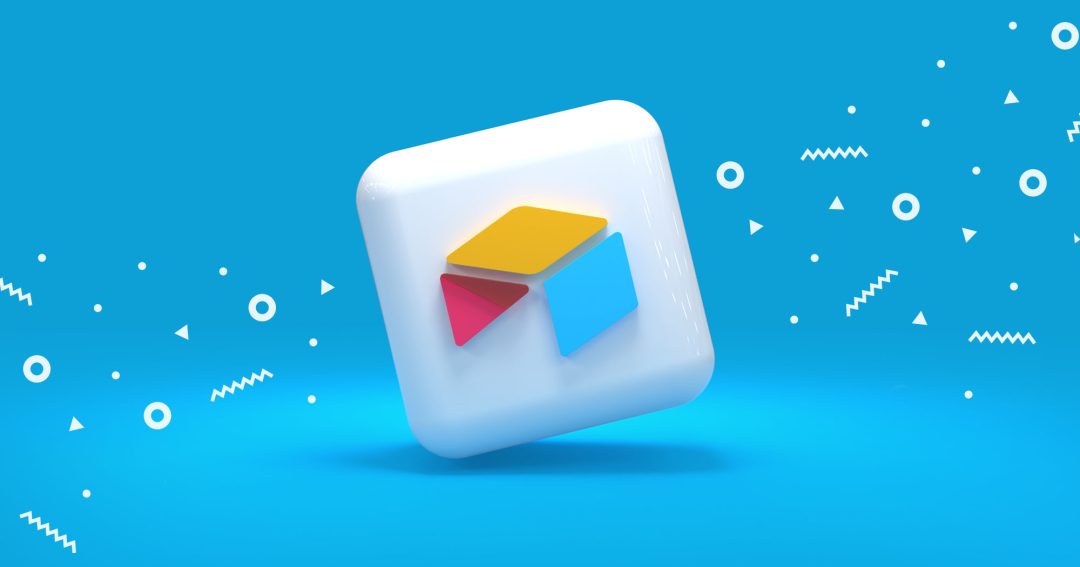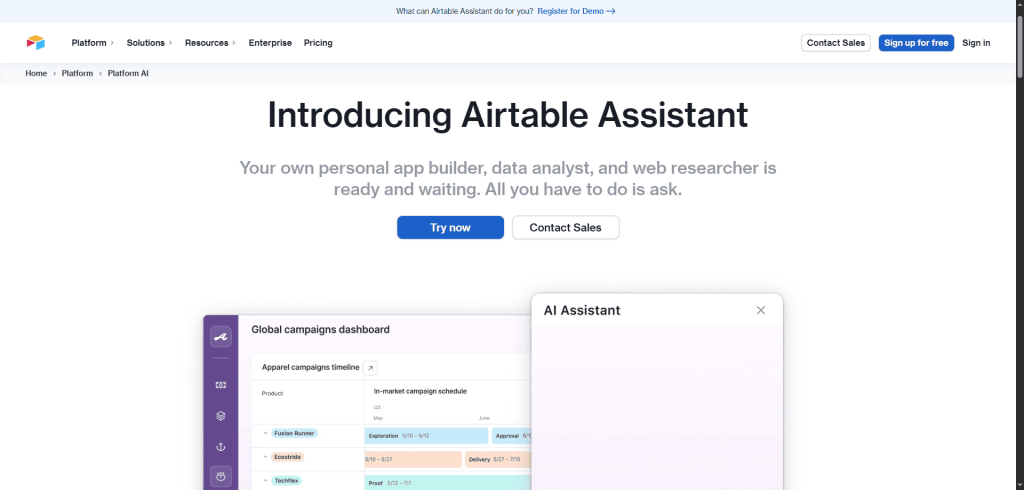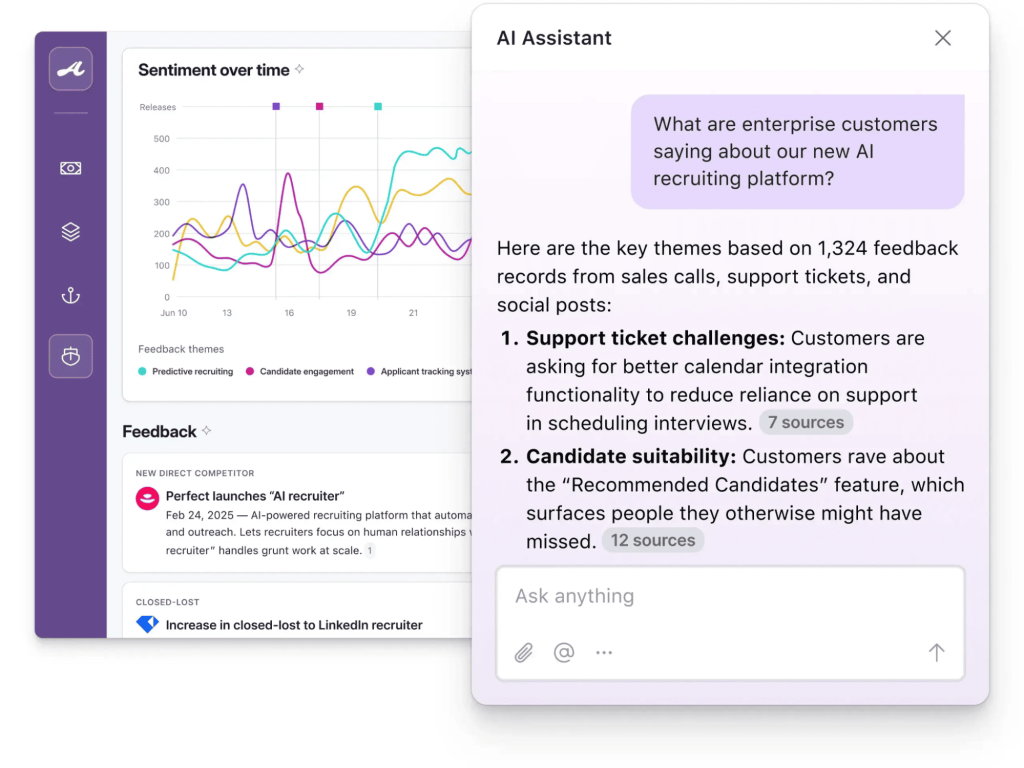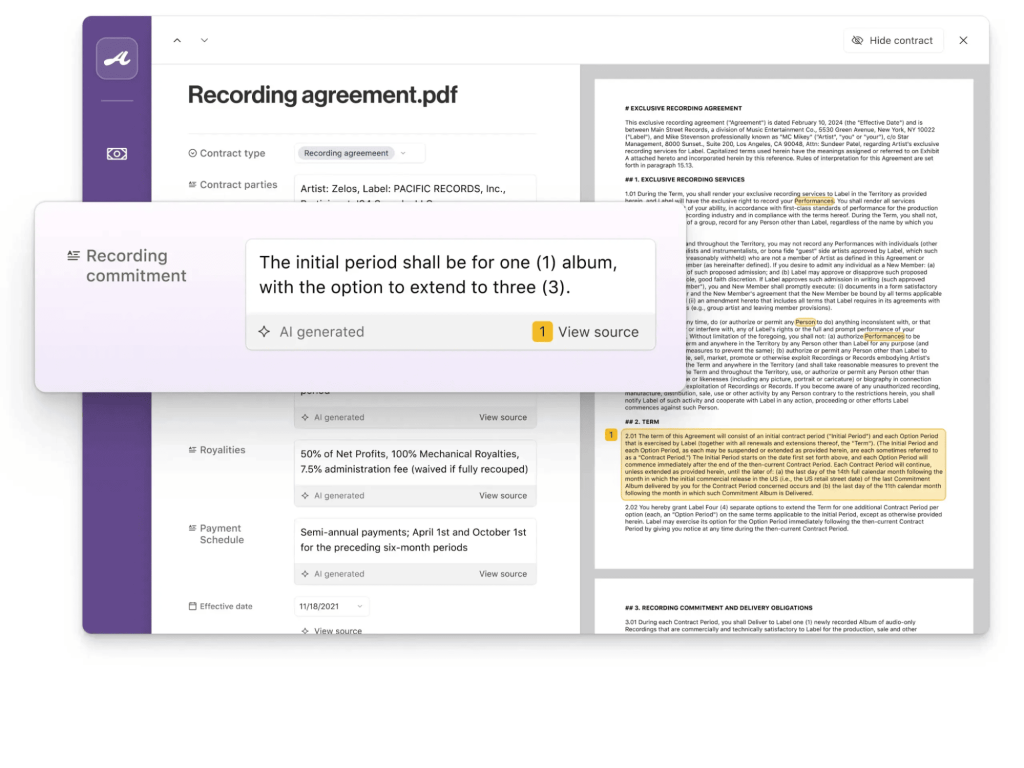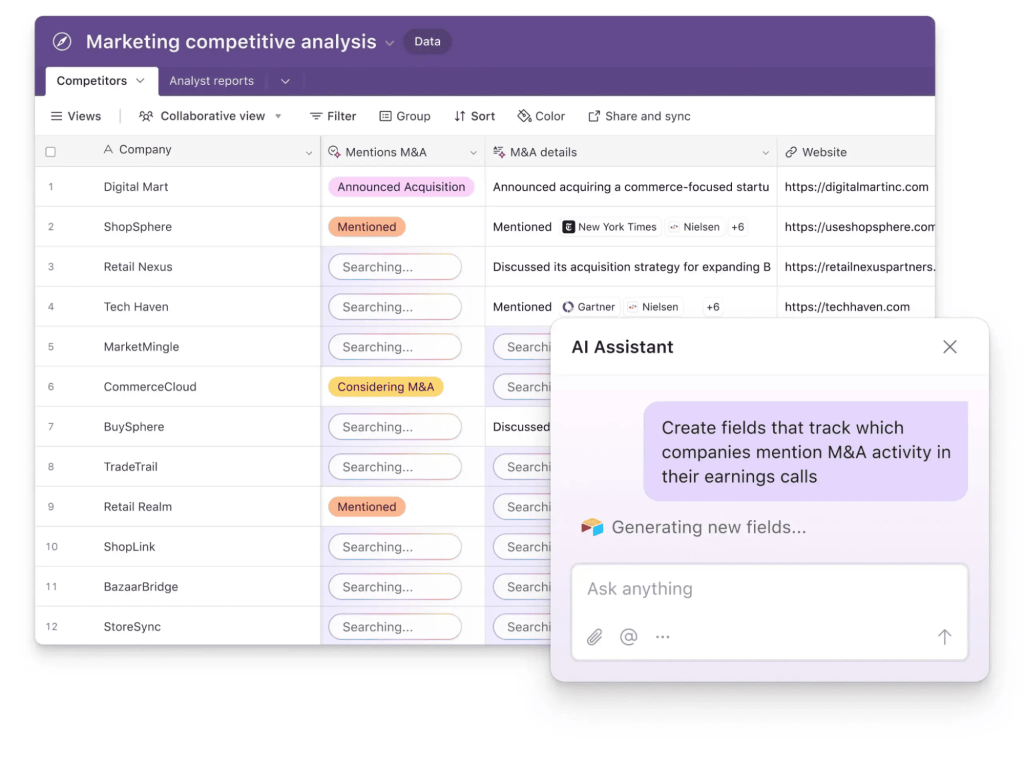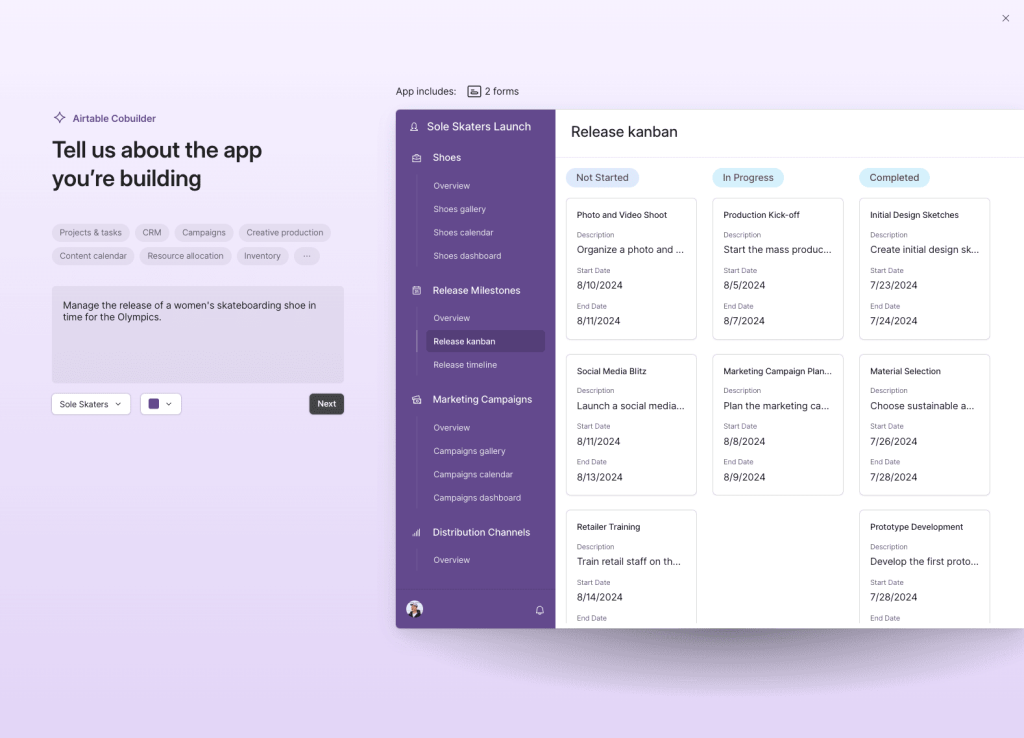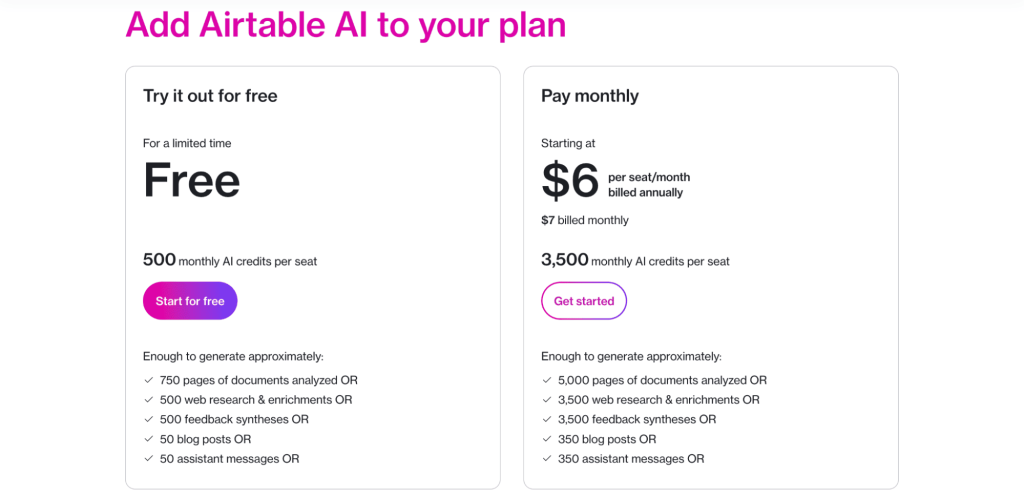AI has revolutionized business tech with unprecedented speed, power, and accuracy, making professionals more effective than ever. What used to take tons of time and effort can now be fully automated with peace of mind that AI will get the job done.
And while new AI-powered tools are coming to life, the long-established players are increasingly adding new AI products and features to their platforms to maintain their competitiveness.
One such example is Airtable—a well known spreadsheet-database platform that enables teams to automate workflows, track projects, and build custom apps—a leader in the no-code space.
Just last year they rolled out their very own AI assistant (AIrtable AI) with a suite of diverse AI features built directly into their core product.
But how well does it work in practice, and is it worth the investment for your business in 2025, given the numerous, more specialized AI alternatives out there? Let’s find out.
What is Airtable AI? Product overview
So what is Airtable AI and how does it work?
For starters, let’s quickly remind ourselves of Airtable, the core product that recently created this AI assistant. Airtable is a cloud-based platform that fuses the ease of spreadsheets with the power of data. Launched in 2012, Airtable enables users to organize their data by creating different kinds of tables, views (grid, kanban, etc.), and custom fields.
Airtable particularly gained popularity due its no-code features that empowered sales, marketing, HR, and other non-technical teams to manage projects, automate data-driven processes, and visualize data the way they prefer.
There are literally hundreds of use cases for no-code project management tools like Airtable, from keeping track of customer data and purchase orders to running marketing analytics or organizing SDR onboarding plans, just to name a few.
Now, back to the tool of the hour—their new Airtable AI assistant.
Rather than creating a standalone app like some other companies do, Airtable AI is a ‘product within a product’, bringing brand new, AI-powered features to the Airtable suite.
According to Airtable, the goal of their new assistant is to “harness generative AI in everyday work,” while enhancing workflows and building apps from scratch.
At its core, Airtable AI can summarize your data, uncover insights, tag data, link items in workflows, generate copy, extract info from documents, translate text, and more – all inside the Airtable platform.
Airtable already had impressive features, but this new AI engine definitely took the product to the next level. For instance, while their spreadsheets were already very effective, users can now create ‘AI fields’ in their spreadsheets, ask AI to analyze documents (even PDFs with 1000s of pages), extract relevant data, and then organize it into tables.
With their new Cobuilder feature recently released, Airtable users can create entire projects and applications from a simple natural-language prompt, such as “I need an app to manage my event registration”.
On top of that, AIrtable AI can also answer any questions users may have about their data or projects, for instance “which product had the highest revenue this quarter in region X”.
The Airtable AI assistant is still relatively new and technically still in beta, despite being over a year on the market, and there are definitely certain limitations that would prevent it from being the best choice for different teams that have specialized AI tools to choose from.
For instance, no-code tools have been a hidden sales software hack for quite some time now, so there are numerous specialized alternatives out there to choose from.
